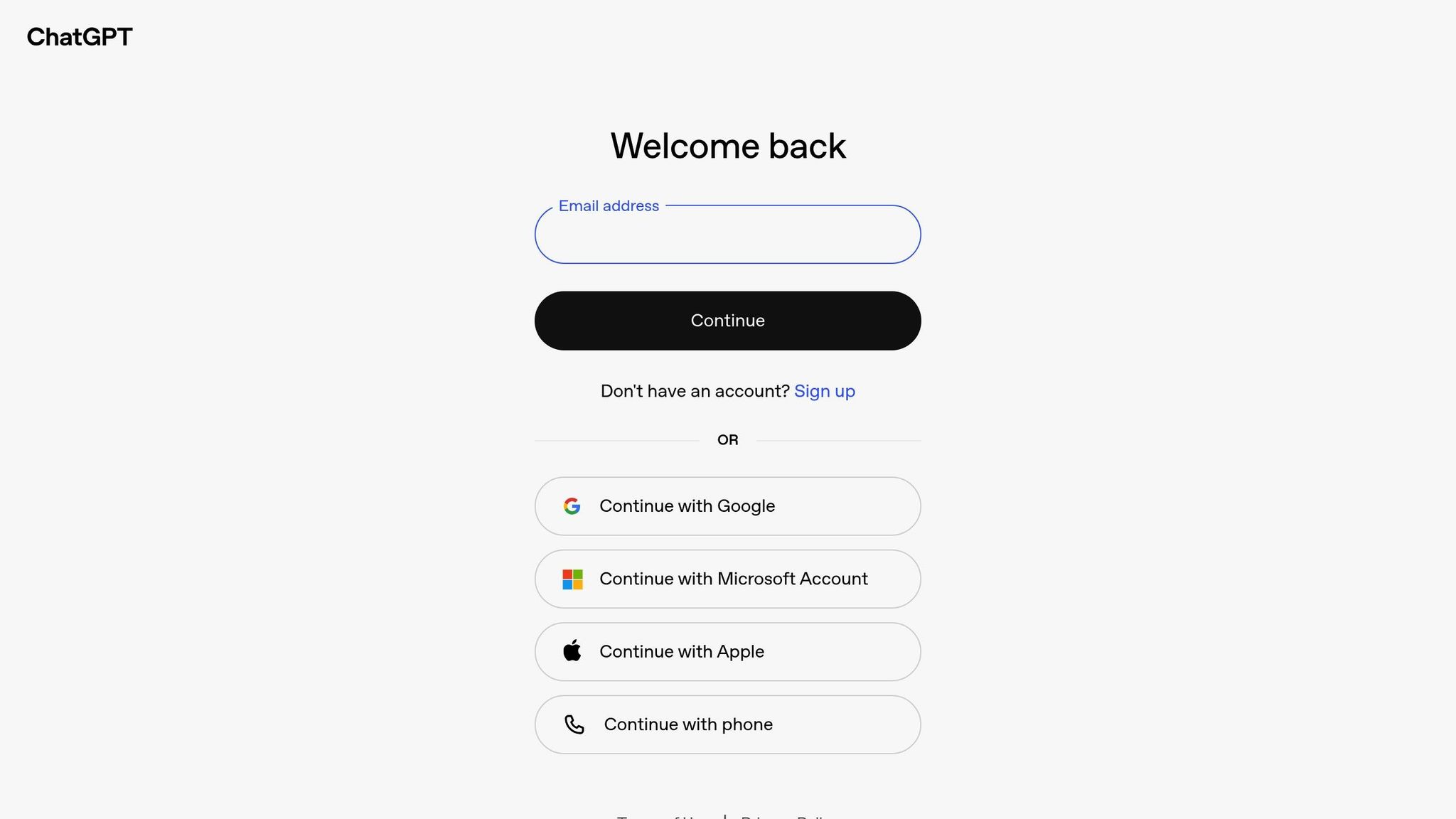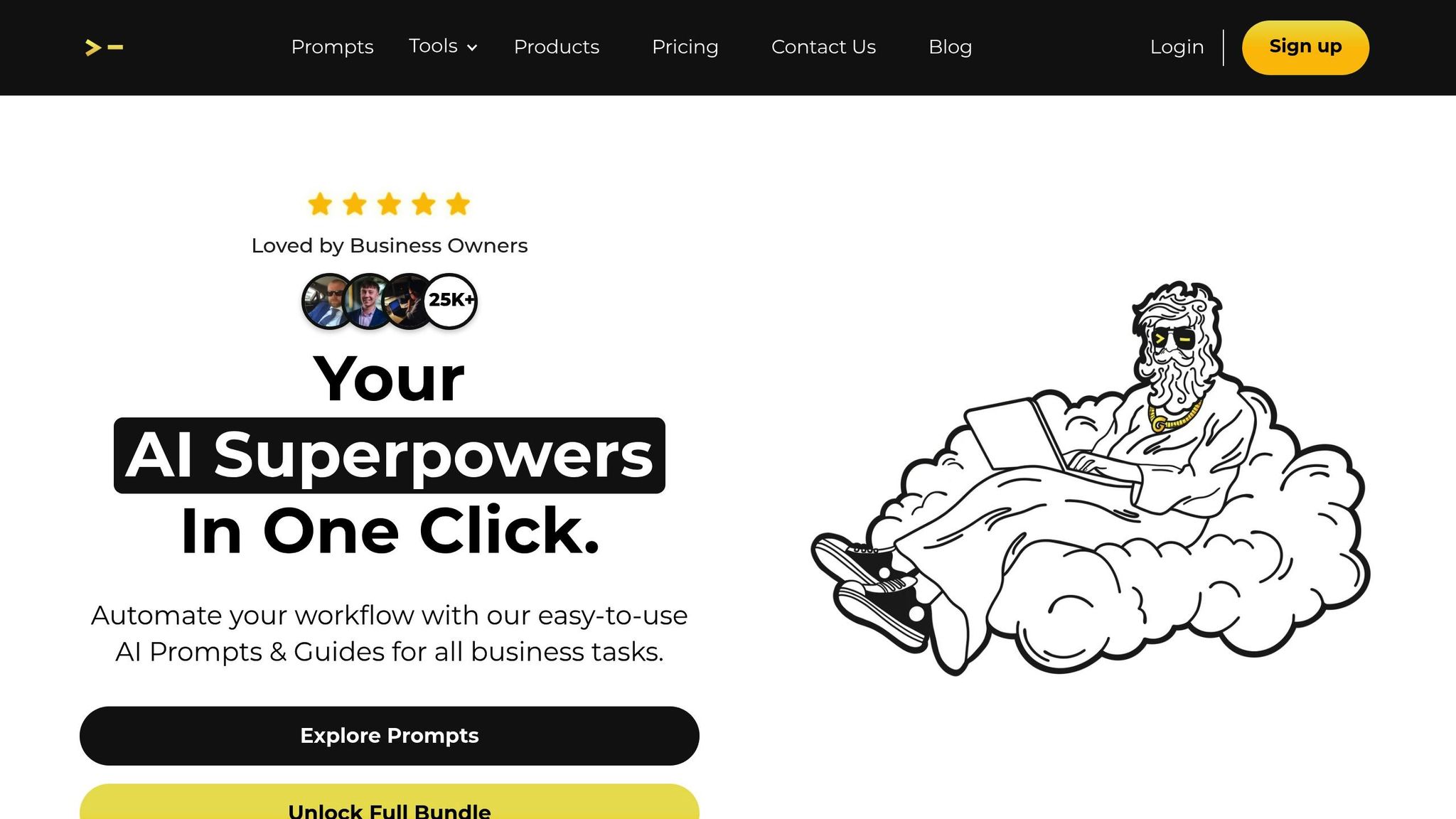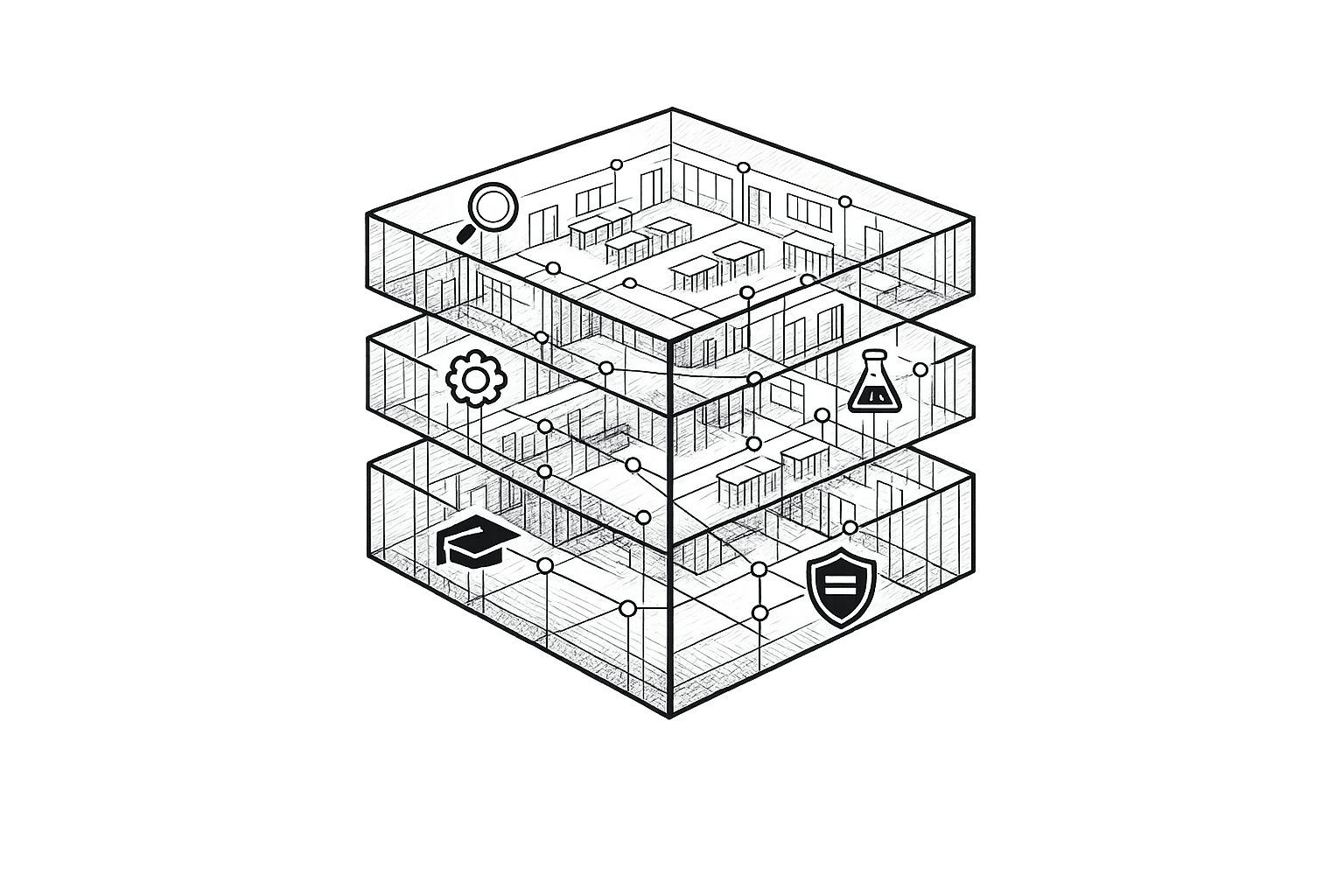Why 87% of Online AI Courses Fail to Prepare You for Real Jobs

Most online AI courses fall short because they focus too much on theory and neglect practical skills employers demand. While AI adoption is skyrocketing - 75% of CEOs already use AI in some form - many courses fail to teach hands-on tools, prompt engineering, and workflow automation, which are crucial for applying AI in jobs.
Key issues include:
- Overemphasis on theoretical concepts without tying them to workplace challenges.
- Lack of training on popular tools like ChatGPT, Midjourney, or GitHub Copilot.
- Missing focus on prompt engineering and automating workflows.
- Poor engagement due to generic, self-paced content with minimal real-world application.
The bottom line: To succeed in the AI-powered job market, you need practical, job-ready skills, not just theoretical knowledge. Solutions like project-based learning and resources such as "God of Prompt" can help bridge this gap, offering actionable tools and strategies tailored for workplace needs.
Major Problems in Online AI Courses
Too Much Theory, Not Enough Practice
One of the biggest issues with many online AI courses is their heavy focus on theory, often leaving learners without the hands-on experience needed to apply these concepts in real-world scenarios. This imbalance stems from AI's academic origins, where the field was primarily explored by researchers with deep expertise in math and statistics. As Michael Bach, formerly of IBM, points out:
"Machine learning used to be a very academic subject with most researchers coming from a strong math/statistics background. With the whole hype nowadays, it suddenly became a software engineering topic. And software engineers, especially young ones, don't have a strong mathematical background. So most courses target the software engineer audience, which makes perfect sense."
While courses dive into the algorithms and mathematics behind AI, they often fail to illustrate how these principles can be used to tackle actual business challenges. Data scientist Colleen Farrelly sheds light on the consequences of this approach:
"This is a huge problem creating a crisis in data science/machine learning as graduates enter jobs completely without the needed skills to correctly apply the methods. These details are often skipped to accommodate learners with limited mathematical backgrounds."
Oliver Price of the University of Warwick further adds:
"As you say, machine learning is very mathematical, which is true. However, when applying machine learning to build models it is more often than not completely unnecessary to understand the maths behind the machine learning theory."
Beyond the overwhelming focus on theory, the lack of practical training with essential tools only widens the gap between what learners know and what they need to do on the job.
Missing Training on Key AI Tools
Another glaring issue in online AI courses is the lack of hands-on training with the tools that professionals use every day. While some courses may reference popular platforms like ChatGPT, they rarely provide step-by-step guidance on how to use them effectively. This is a significant oversight, especially given the growing reliance on AI tools in the workplace. For example, 91% of web developers now use AI to assist with coding, and 36% of professionals in the UK turn to AI content generators for social media. Additionally, 27% of organizations have fully integrated AI into their operations, with another 51% actively exploring its potential.
These tools span a wide range of applications, including:
- Writing and editing (ChatGPT, Jasper.ai, Grammarly)
- Visual content creation (DALL-E, Midjourney, Canva Magic Design)
- Productivity enhancement (Notion AI, Otter, Fireflies)
- Coding assistance (GitHub Copilot, Replit Ghostwriter)
- Data analysis (Power BI, Tableau with AI features)
The benefits of mastering these tools are clear - employees who effectively use AI can save an average of 1.75 hours per day. Unfortunately, the lack of practical training means learners miss out on these time-saving advantages and are less prepared for the demands of modern workplaces.
No Focus on Prompt Engineering and Workflow Automation
Prompt engineering and workflow automation are two critical skills that many online AI courses fail to address. Prompt engineering, the art of crafting precise instructions to maximize AI performance, is an essential part of working with tools like ChatGPT. Yet, in many courses, it’s barely mentioned - if it’s covered at all.
Similarly, workflow automation, which involves using AI to handle repetitive tasks and integrate intelligent processes into business operations, is often overlooked. This is despite the fact that over half of CEOs report seeing efficiency gains from generative AI. Employees who can design and implement automated workflows are increasingly in demand, but many courses leave learners unprepared to meet this challenge.
To improve AI training, courses could include practical advice such as:
- Experimenting with different inputs to optimize results from AI tools like DALL-E and Midjourney
- Crafting thoughtful prompts that include specific context and tone
- Double-checking AI-generated outputs for errors
- Incorporating AI tools into daily workflows rather than using them sporadically
Addressing these gaps is essential to turning AI education into a meaningful pathway for career readiness and practical problem-solving.
Why Hands-On AI Skills Matter for US Jobs
The Move Toward AI-Based Roles in Business
The American job landscape is undergoing a major transformation as AI becomes a fundamental part of nearly every department. What was once seen as a niche research area has now evolved into a core skill set that businesses expect across the board. As one industry expert put it:
"In 2025, the AI job market has entered a new phase, a phase where specialization beats generalization, and where the ability to apply AI to real-world problems is the key differentiator between resumes that get callbacks and those that don't."
This shift has sparked the creation of entirely new job categories. Autodesk's 2025 AI Jobs Report highlights how demand for roles like AI Engineers has soared by 143.2%, Prompt Engineers by 135.8%, and AI Content Creators by 134.5%. Interestingly, design skills are now outpacing traditional coding abilities. More than 75% of AI-related job postings now emphasize applied skills linked to specific tools, frameworks, or industry applications. The message is clear: hands-on AI expertise is no longer optional - it’s essential.
The Rising Need for Workflow Automation and Prompt Engineering
Practical AI skills are becoming a priority for U.S. businesses, as theoretical knowledge alone doesn’t meet today’s demands. Companies are looking for professionals who can apply AI to streamline workflows and master prompt engineering.
Prompt engineering, in particular, has emerged as a game-changer. It directly influences business outcomes by determining how effectively AI tools like ChatGPT, Claude, and Midjourney perform. Jules White, a computer science professor at Vanderbilt University, explains:
"The main problem is that most people don't know where to start when confronted with a blank generative AI canvas. The limit isn't the technology, the limit is our ability to creatively use it in our work and daily lives."
Currently, about 40% of organizations are customizing large language models to fit their specific needs. This growing reliance on AI has led to premium salaries for skilled professionals, with IT workers seeing pay increases of up to 47% for AI expertise. Looking ahead, experts predict that AI could automate over 30% of global work hours by 2030, making those who can design and manage automated systems indispensable.
What Employers Expect from AI Skills and Experience
As AI reshapes the job market, employer expectations are evolving just as quickly. In the U.S., 71% of employers now prioritize candidates with AI skills, while 66% are unwilling to hire those without them. It’s no longer enough to understand AI in theory - employers want professionals who can apply it effectively within enterprise systems and industry-specific scenarios.
Enrique Perez-Hernandez, Head of Global Technology Investment Banking at Morgan Stanley, captures this shift perfectly:
"Writing code has become much faster with AI, but now the value is in testing and understanding it and seeing if it works for the business."
The most sought-after professionals combine technical know-how with a strong understanding of business needs. Early-career workers with solid AI expertise are being fast-tracked, with 77% of business leaders reporting they’re more likely to promote AI-skilled junior employees over those with traditional training. In today’s competitive job market, having a specialized, job-ready portfolio, contributing to open-source projects, and demonstrating proficiency in deploying AI tools are becoming the ultimate career differentiators.
Closing the Gap: Applied AI Training for Job Success
Project-Based and Workflow-Focused Learning
To truly prepare for AI-driven roles, training must go beyond theory and dive into project-based learning that mirrors real-world scenarios. This method emphasizes creating tangible solutions, allowing learners to develop critical thinking and problem-solving skills that employers value most. By tackling authentic projects, learners not only grasp the concepts but also gain experience in applying AI to practical challenges. For instance, AI-integrated project work often involves collaboration to address real problems, making it an essential bridge between academic theory and workplace demands.
Take workflow automation as an example. Businesses are increasingly using AI to streamline operations. General Electric, for instance, employs AI-driven workflow automation for predictive maintenance. Sensors gather data, AI models predict equipment failures, and automated systems handle scheduling and parts ordering. This process minimizes downtime and reduces costs. When learners focus on similar workflow-based projects with well-structured data, they gain the skills to address real business challenges, moving beyond purely theoretical exercises.
Using Tools Like ChatGPT, Claude, and Midjourney

Hands-on experience with industry-standard AI tools is key to staying competitive in today’s job market. Unfortunately, many training programs fail to provide enough practical exposure to widely used platforms. Effective learning programs focus on practical applications across areas like content creation, coding, and graphic design. Small, interactive sessions with 15–20 participants often work best for personalized, engaging learning experiences. For example, Voicetechhub trains over 200 participants monthly, with 80% contributing at least one AI improvement idea.
Prompt engineering is another vital skill, unlocking the potential of large language models like ChatGPT, Claude, Gemini, and Llama. Training programs should also include visual AI tools to complement text and coding applications. Integrating these tools into everyday tasks - rather than isolating them in standalone modules - helps learners apply their knowledge immediately. Organizations like Vilnius Coding School design their courses around real-world applications, ensuring participants can seamlessly incorporate AI into daily workflows. This approach equips learners with the skills they need to excel in AI-powered roles.
God of Prompt: Your Complete AI Learning Resource

God of Prompt bridges the gap left by traditional AI courses by offering over 30,000 AI prompts tailored for practical business use. Unlike programs that focus solely on abstract concepts, this resource provides categorized prompt bundles for areas like marketing, SEO, productivity, and no-code automation - tools professionals can use right away. Beyond prompts, it includes comprehensive guides for popular AI tools like ChatGPT, Claude, Midjourney, and Gemini AI, along with detailed instructions for prompt engineering and custom GPTs.
This resource embodies a project-based learning philosophy, focusing on workflow automation and delivering measurable business outcomes. It’s continually updated to align with the latest AI tools and industry trends. Plus, it comes with a 7-day money-back guarantee, ensuring learners can quickly enhance their skills with confidence.
| Bundle Type | Price | Focus Area | Business Application |
|---|---|---|---|
| Writing Pack | $37 | Content Creation | Marketing copy, business communications |
| ChatGPT Bundle | $97 | Workflow Automation | Customer service, data analysis, reporting |
| Midjourney Bundle | $67 | Visual Content | Marketing materials, social media, branding |
| Complete AI Bundle | $150 | All Business Functions | Comprehensive AI applications |
What makes God of Prompt stand out is its focus on actionable resources. Instead of requiring months of study before seeing results, users gain immediate access to proven prompts and strategies designed to address workplace challenges. Lifetime updates ensure the content evolves alongside AI advancements, keeping professionals equipped with the latest tools and techniques. The 7-day money-back guarantee reflects the program’s dedication to helping learners quickly close the gap between training and job readiness.
sbb-itb-58f115e
Conclusion: Getting Ready for the AI-Powered Future
Key Takeaways from Online AI Course Challenges
Our examination reveals a critical issue: theoretical learning alone doesn't prepare individuals for AI-driven roles. Many online AI courses lean heavily on abstract concepts while neglecting practical, job-focused skills. This gap highlights the importance of training that equips learners with tools they can immediately apply in real-world scenarios. As Julia McCoy, Founder of First Movers, aptly states:
"AI training isn't just about teaching machines - it's about training yourself to understand, work with, and leverage AI technologies effectively."
Traditional programs often miss the mark by focusing on theory, leaving learners unprepared for essential skills like prompt engineering and automation. In response, specialized micro-credentials are replacing broad certifications, and AI learning platforms are incorporating adaptive AI tutors to address individual learning needs.
How to Build Job-Ready AI Skills
Closing the skills gap requires a practical, step-by-step approach. Start by strengthening your foundation with programming, mathematics, and an understanding of industry trends. From there, tailor your learning path - whether it's Applied AI, Technical AI, or Strategic AI - based on your career aspirations.
Hands-on experience is key. Focus on integrating AI into your daily tasks and mastering prompt engineering, a skill that unlocks the full potential of AI tools. The demand for this expertise is evident; a Coursera course on prompt engineering for ChatGPT has already drawn over 450,000 participants. As Jules White, a computer science professor at Vanderbilt University, points out:
"The main problem is that most people don't know where to start when confronted with a blank generative AI canvas. The limit isn't the technology, the limit is our ability to creatively use it in our work and daily lives."
Choose your resources wisely. Look for comprehensive courses, project-based learning opportunities, certifications, and active AI communities. Combine formal learning with hands-on projects, participate in discussions, and share your work to deepen your understanding. Staying current with emerging trends and technologies is crucial, as the AI field evolves rapidly.
To position yourself for success, develop a resume that showcases your AI-related skills, projects, and coursework. Entry-level roles or internships can provide valuable, practical experience.
For bridging the gap between theory and practice, tools like God of Prompt offer practical solutions. With over 30,000 AI prompts, detailed guides, and workflow automation strategies, this resource supports real-world application. Lifetime updates and a 7-day money-back guarantee make it an accessible option for professionals aiming to integrate AI into their work effectively. The future will favor those who can harness AI's potential - so start building your skills today.
AI Skills That Employers Are DESPERATE For (No Coding Required)
FAQs
What key skills should I focus on to prepare for a career in AI?
To thrive in the AI industry, it's important to focus on building practical, job-focused skills that employers are actively seeking. Start by strengthening your programming abilities, with Python being a must-learn language. From there, dive into the core concepts of machine learning and deep learning to establish a solid technical foundation.
Familiarity with popular AI tools like ChatGPT, Claude, and MidJourney is becoming increasingly important, as is learning prompt engineering techniques to make the most of these tools.
Beyond technical expertise, it's also valuable to develop skills in data analysis, no-code automation, and creating business-focused workflows. Knowing how to apply AI to solve practical, industry-specific problems is key. By focusing on these areas, you’ll be better equipped to connect theoretical knowledge with real-world applications.
Why is prompt engineering an essential skill for AI professionals?
Why Prompt Engineering Matters for AI Professionals
Prompt engineering plays a key role in working with AI systems like ChatGPT or Claude. It’s all about crafting clear, effective prompts that help these systems produce accurate and meaningful results. Think of it as the connection between what humans want and what AI can do, making sure the output meets specific objectives.
This skill is especially important in practical applications. Whether you’re using AI for creating content, analyzing data, or automating workflows, strong prompt engineering ensures these tools perform efficiently and deliver results that align with business needs. It’s the foundation for building AI solutions that are dependable and tailored to real-world tasks.
How does project-based learning help me apply AI skills in real-world situations?
Project-based learning offers a practical way to build AI skills by diving into hands-on problem-solving. Instead of just reading about concepts, you get to work directly with tools like ChatGPT and Claude, honing abilities such as prompt engineering and workflow automation. This method encourages critical thinking, sparks creativity, and promotes teamwork - key ingredients for addressing challenges in real-world settings.
By tackling projects, you not only deepen your understanding of AI applications but also learn how to apply them in business scenarios. The result? You develop the know-how to craft actionable solutions, equipping yourself for roles that demand AI expertise.






















